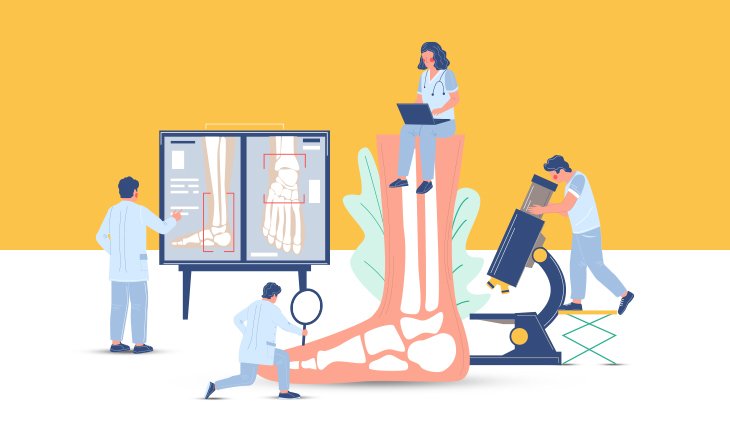
Why is running good for you?

Exercise, as we all know, is the foundation for an active and healthy life. And running is one of the most accessible sports that can be enjoyed at any age or level. There are many positive health benefits of running on the body. It benefits your body and overall well-being, right from improving your heart health and building muscle strength to losing weight and combating depression. All you need to do is put on your running shoes and jog your way to good health — any time, anywhere.
What benefits does running have on your body?
What are the health benefits of running that are backed by science and how does it change your body for the better? Let us find out the daily effects of running on the body.
1. Changes body composition
Running is one of the best forms of exercise to lose as well as maintain weight. It burns subcutaneous body fat and builds muscles. Running regularly, alongside a balanced diet, can help you achieve these results by creating a calorie deficit. However, for better muscle mass growth, it is recommended to combine strength and conditioning with running.
2. Strengthens bones
Running is a weight-bearing, high-impact exercise that stresses the bones, making them stronger. Wolfe’s law, developed by the German anatomist and surgeon Julius Wolff, states that in healthy people, bones respond to stress by reforming to handle it better. The high impact applied to your body while running increases your bone mass along with bone density by remodeling the deposition of the bones and minerals.
3. Improves heart health
The benefits of running for the heart are numerous. Think of running as an insurance policy that may offer both short and long-term protection to your heart. Muscles grow stronger as we exercise. Exertion causes micro-tears in the muscles, which are repaired during resting periods, making them strong. The principle applies to your heart as it is a muscle as well.
4. Increases lung capacity
What are the benefits of running for your lungs? Running tones your core muscles, including those of the rib cage and diaphragm. Speed workouts, tempo runs, and sprints will improve the capacity of your lungs. Running also increases the number of mitochondria, which plays an important role in cellular respiration, and helps the body use oxygen more efficiently from the lungs.
Also listen: Ep. 1 : How To Get Started With Running?
5. Boosts digestion
Research shows that your gut is controlled in part by the central nervous system in the brain and the spinal cord. Hence, if you are stressed, it affects your digestion, causing a wide range of gastrointestinal problems like ulcer, diarrhea, and irritable bowel syndrome. Running can help alleviate these conditions by improving blood flow to the digestive system.
6. Improves cognitive function
Running is also a stress-reliever and is known to boost the production of endorphins that could elevate and improve your mood. According to a study in the American College of Sports Medicine journal, running for 30 minutes on a treadmill can instantly uplift the mood of someone with serious depressive tendencies. It also makes one resilient to stress and helps increase levels of neurotransmitters such as serotonin, which causes the brain to generate new neurons and boost mental health. It leads to better sleep and a sharper focus as well.
7. Enhances immunity
Our immune system is complex, with multiple factors such as diet, sleep, stress, and medications playing a role. Light or moderate running boosts our immune system; however, this can be a double-edged sword. If you overdo it, you can easily go from being vibrant and healthy to being energy-deficient.
There is a relationship between intensity, duration of the runs, and immune functions. Moderately intense workouts strengthen the immune system. Running for more than an hour has the potential to weaken your immunity temporarily, which lasts for a few hours and can invite infections. However, that doesn’t hold true for everyone. It differs from person to person.
It is best to allow the immune system time to recover by taking adequate rest in between training and providing the body with good hydration and nutrition.
8. Good for the skin
Running boosts circulation and delivers more oxygen and nutrients to the skin, repairing it and increasing collagen formation. Therefore, cortisol levels in the blood are decreased. This helps prevent chronic skin conditions such as eczema, psoriasis, and acne. It also tightens the skin by reducing cellulite count, which is a harmless condition that causes lumpy, dimpled flesh on the thighs, hips, buttocks, and abdomen.
Training yourself to derive the wonderful effects of running every day can improve overall fitness and aid weight loss. But don’t forget to schedule rest days, too. It is important to give your body the requisite time to heal and recover every once in a while. And if you do get injured, consult a doctor and seek physiotherapy at the earliest. Love your body, and it will love you back!
For more information on running, you can also listen to our podcast, Run with Fitpage.













